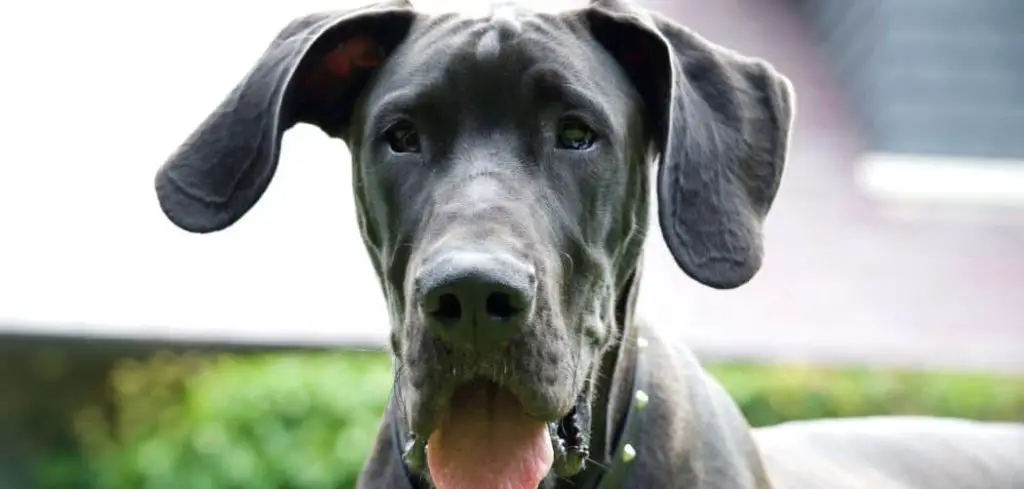Old dog panting excessively and shaking is a worrying sight for any pet owner.
These symptoms often signal underlying stress, discomfort, or even a medical emergency—especially when they appear suddenly in senior dogs.
We outline the common causes of an old dog panting excessively and shaking, what you can do at home, and when to seek veterinary help.
Old Dog Panting Excessively and Shaking — Why It Happens
Excessive panting and shaking in older dogs can be signs of pain, anxiety, neurological issues, or internal medical conditions. Your senior dog may be struggling with arthritis pain, overheating, or a hormonal imbalance.
Conditions such as Cushing’s disease, poisoning, or canine cognitive dysfunction can also trigger these distressing behaviors. Sometimes, it’s as simple as fear or stress, but in older dogs, these signs deserve a closer look.

Common Causes of Old Dog Panting Excessively and Shaking
Pain or Discomfort
Pain is a common culprit behind both panting and shaking in senior dogs.
Arthritis, dental issues, or internal discomfort like gastrointestinal upset can cause your dog to pant heavily and tremble.
Panting helps dogs cope with discomfort, while shaking may be a response to sharp or chronic pain.
Older dogs are particularly prone to age-related joint and nerve pain, which can worsen at night or after activity.
Read more: Old Dog Breathing Heavy and Not Eating (Here’s why)
Canine Cognitive Dysfunction (Dog Dementia)
In older dogs, panting and shaking can be signs of canine cognitive dysfunction (CCD).
Similar to Alzheimer’s in humans, CCD affects memory, awareness, and behavior.
Disoriented dogs may pant and shake as they become anxious or confused, especially in the evening (known as sundowning).
You may also notice pacing, whining, or staring at walls.
Cushing’s Disease
Cushing’s disease is caused by an overproduction of cortisol, a stress hormone.
It often affects senior dogs and leads to excessive panting, muscle weakness (which can cause shaking), increased thirst, and a pot-bellied appearance.
You may also notice thinning fur, skin issues, and a noticeable increase in appetite and urination.
This condition progresses gradually and is commonly mistaken for normal aging.
Anxiety or Fear
Stress, separation anxiety, and noise phobias can cause trembling and panting in dogs of all ages, including seniors.
An old dog might become more sensitive to loud noises, unfamiliar guests, or changes in routine.
Unlike younger dogs, senior dogs might display these symptoms more intensely, especially if they have underlying medical conditions amplifying their response.
Read more: Dog Panting Excessively (Here’s why)
Heart Disease
Panting and shaking in an old dog may point to heart problems.
As the heart weakens, your dog may struggle to circulate oxygen efficiently, resulting in labored breathing or panting, even at rest.
Shaking may be due to fatigue or poor circulation.
Coughing, lethargy, or collapse are additional signs that your senior dog’s heart may need evaluation.
Toxins or Poisoning
Ingestion of toxins—whether medications, certain foods, or chemicals—can cause acute panting and shaking.
Even older dogs can get into harmful substances around the house or yard.
Other signs of poisoning include vomiting, drooling, disorientation, and collapse.
This is an emergency requiring immediate veterinary intervention.
What to Do If Your Dog Is Old, Panting Excessively and Shaking
Start by making sure your dog is in a calm, cool environment. Offer water and remove any potential stressors, such as loud noises or excessive activity.
If your dog seems overheated, use a fan or damp towel to cool them gradually—but avoid using ice-cold water, as this can worsen their condition.
Gently examine your dog’s body for signs of pain or injury, but avoid touching any area that seems tender.
Keep a journal of when the symptoms occur, how long they last, and what else is happening (time of day, food intake, medications, etc.). This can help your vet identify patterns.
If your dog is experiencing anxiety, consider calming strategies like a quiet room, pheromone diffusers, or anxiety wraps. Speak in a soothing tone, and offer gentle reassurance without smothering.
When to Call or Visit Your Vet
Seek immediate veterinary attention if your dog’s panting and shaking are accompanied by:
Pale gums
Vomiting or diarrhea
Collapse or disorientation
Excessive drooling
Difficulty breathing
Seizures
Refusal to eat or drink for more than 24 hours
Also contact your vet promptly if these symptoms occur repeatedly or get progressively worse over time. In senior dogs, early diagnosis often leads to better management.
Read more: Old dog shivering and not eating (What’s causing it?)
Key Takeaway
When an old dog is panting excessively and shaking, it’s not something to dismiss—these signs could indicate anything from stress to a serious health issue.
While some causes are manageable at home, others require prompt veterinary care.
Trust your instincts as a pet parent. If your dog seems uncomfortable, unwell, or unlike their usual self, don’t wait to get help.
Early intervention is especially important for senior dogs to ensure their comfort and quality of life.
